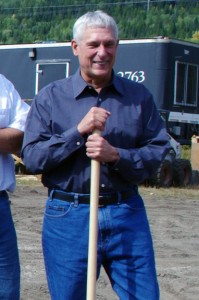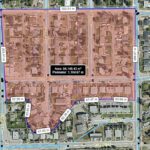Home »

Elk Valley garbage likely destined for Central Subregion
Time has run out for Elk Valley solid waste to be trucked to Crowsnest Pass/Pincher Creek Landfill and the new home for the garbage is being established by the Regional District of East Kootenay (RDEK).
Regional directors Oct. 4 unanimously approved a motion to start having Elk Valley solid waste be trucked to the Central Landfill near Cranbrook, but not before a fair disposal fee is set for the Elk Valley Subregion, while helping to stabilize property taxes in the Central Subregion and as long as a portion of the revenue from those disposal fees can be placed in a reserve fund for future diversionary initiatives.
A July 22 report from Environmental Services Manager Kevin Paterson and Chief Financial Officer Shawn Tomlin noted that regional administrative staff has undertaken a review of both the Solid Waste Management Plan and “the potential implications of accepting Elk Valley solid waste at the Central Landfill as a board identified priority project.”
The contract for acceptance of Elk Valley municipal solid waste at the Crowsnest/Pincher Creek Landfill expired in August.
Should the regional board agree to start shipping Elk Valley solid waste west instead of east into Alberta, it could result in extra revenue that would offset Central Landfill operating costs and perhaps provide property taxation savings to Central Subregion residents (City of Cranbrook, City of Kimberley, Electoral Area B, Electoral Area C, Electoral Area E), the report outlines.
It also notes that the approximately 9,000 tonnes of waste generated annually in the Elk Valley would decrease the lifespan of the Central Landfill by 23 years (to the year 2084 from 2107).
“While accepting waste from the Elk Valley would result in faster usage of landfill space, and some additional operating costs, it would also bring additional revenue into the Central Subregion, which would offset operating costs and could result in reduced taxation for properties in the Central Subregion. The actual amount of reduction would depend on the fees set for waste brought in from the Elk Valley,” noted the report to the board.
And there was the rub.

Electoral Area C Director and Board Chair Rob Gay suggested an addition to the report of a $60/tonnes fee for a five-year period but Elk Valley directors balked at setting a figure until actual costs are known.
“More analysis is needed,” said Electoral Area Director Mike Sosnowski, noting that hauling costs should be finalized before a rate is set.
“My sense is we are basically re-allocating funds from Alberta,” Gay replied.
City of Cranbrook Mayor and board director Wayne Stetski noted the current cost to ship solid waste to Alberta is $63 a tonne, which would mean “some savings to the Elk Valley,” based on Gay’s suggested figure.
District of Elkford Mayor and board director Dean McKerracher cautioned that combined distances for hauling trucks to travel would increase by heading west to the Central Landfill.
“There is some distance difference there. I’d like to see solid numbers to take to my council,” he said, pointing out it is an hour’s drive to the Crowsnest Pass from Elkford but a two-hour trip to Cranbrook.
District of Sparwood Mayor and board director Lois Halko agreed. “Rather than pick an arbitrary number” she would rather regional and Elk Valley municipal staff do an analysis to get firm numbers.
The board defeated Gay’s Friday motion and opted to stick with the original one established during committee meetings Thursday evening.
The regional staff report concludes: “Based on a cost-sharing approach, the cost for bringing in waste from the Elk Valley (including incremental costs per the contract) would be between $35 and $45 per tonne, depending on the volume of waste and variation in annual landfill operating costs. Based on a $40 per tonne tipping fee, the financial effect to the Central Subregion in 2012 would have been net revenue of about $325,000 ($368,000 gross revenue), which would have resulted in a nine per cent reduction in taxation, distributed as follows: City of Cranbrook $140,000; City of Kimberley $47,500; Electoral Area B $52,000; Electoral Area C $60,000; and Electoral Area E $25,500,” stated Paterson’s and Tomlin’s report.
“The cost for tipping fees at Pincher Creek / Crowsnest Pass in 2012 was $570,000, at a rate of $63.35 per tonne. In discussions with Crowsnest Pass/ Pincher Creek operations, they would be prepared to re-negotiate a similar contracted rate, with rates remaining stable with a longer agreed term.
“Costs associated with hauling waste to the Central Landfill versus the Crowsnest Pincher Creek would be similar,” the report concluded.
Ian Cobb/e-KNOW







